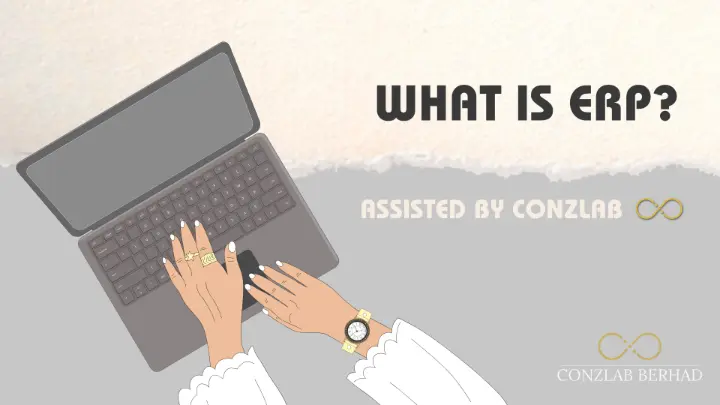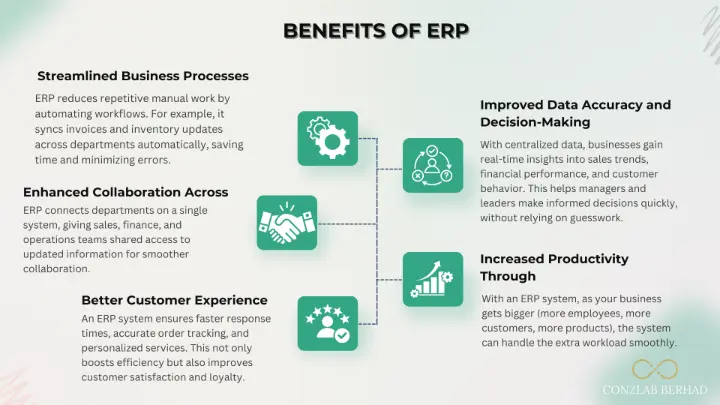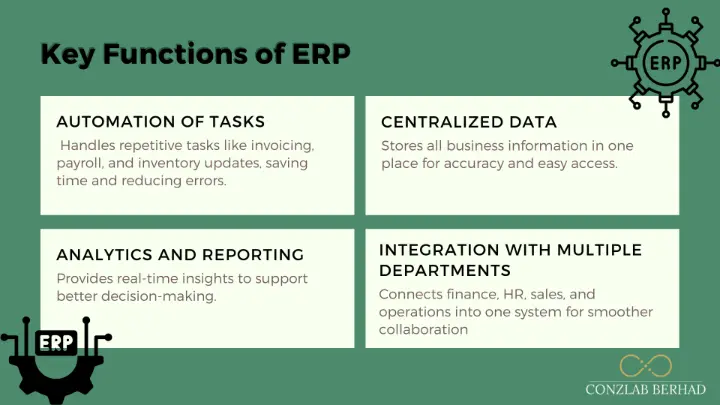Introduction

Enterprise Resource Planning (ERP) is a type of software system that helps businesses manage and integrate their core processes in one centralized platform. Instead of using separate tools for accounting, HR, inventory, sales, or supply chain, ERP brings them together into a single system. This integration ensures that data flows seamlessly across departments, reduces duplication, improves accuracy, and provides real-time insights for better decision-making. In short, ERP acts as the “backbone” of modern organizations, supporting growth, efficiency, and collaboration.
Advantages of ERP
ERP offers both powerful benefits and practical features that help businesses run more smoothly. By centralizing data and automating tasks, it reduces errors, saves time, and improves collaboration across departments. With real-time insights and streamlined processes, companies can make better decisions, increase productivity, and stay competitive in today’s fast-moving business world.

The features of ERP systems are designed to simplify and strengthen business operations. By automating routine tasks, centralizing data, providing real-time analytics, and integrating different departments, ERP helps companies work more efficiently and make smarter decisions. These capabilities not only save time and reduce errors but also create a strong foundation for growth, collaboration, and long-term success.
Types of ERP Systems
Cloud-Based ERP
- Hosted on the internet and accessible anywhere with an internet connection.
- Lower upfront cost and easy scalability.
- Ideal for SMEs that want flexibility without heavy IT infrastructure.
On-Premise ERP
- Installed on the company’s own servers and managed in-house.
- Offers higher control, customization, and security.
- Suitable for larger enterprises with strong IT resources.
Hybrid ERP
- A mix of cloud and on-premise solutions.
- Businesses can keep sensitive operations in-house while using cloud services for other functions.
- Provides flexibility and a balanced approach.
Conclusion
In conclusion, ERP is more than simply software; it is a strategic tool that enables firms to optimise operations, decrease mistakes, and promote cross-departmental cooperation. ERP helps organisations run more efficiently and make better choices by centralising data and automating operations. Adopting ERP is no longer an option for any organisation looking to develop and remain competitive in today's fast-paced environment.
Efficiency is doing things right; ERP ensures you do them faster and smarter.
ERP (Enterprise Resource Planning) is a software system that integrates core business processes such as finance, HR, sales, and inventory into a single platform for better efficiency and collaboration.
Businesses need ERP to reduce manual work, avoid data duplication, improve accuracy, and enhance decision-making through real-time insights.
ERP automates repetitive tasks, ensures all departments use the same data, and provides tools for faster, smarter decision-making, reducing delays and errors.
How ERP Transforms Business Efficiency and Productivity